Given our digital age, it seems absurd that paper waste is still rife in government, education, healthcare, retail, and other paper-intensive industries. Our paper consumption must be responsible, helping to protect the environment and conserve natural resources. Cutting down our paper wastage isn’t just a big tick for the planet — it can also benefit a business’s bottom line and green credentials.
Most paper is recyclable, so adopting small actions that become habits can create a more eco-friendly and organised home office or working environment. Discover the innovative and sustainable methods your teams can use to ensure effective paper waste management.
What is paper waste?
Paper waste is any paper that we can longer use and is destined for disposal. It’s commonly called ‘scrap paper’ — bills, instruction manuals, old newspapers, supermarket receipts, used envelopes, etc.
Several issues can cause paper waste, including printing mistakes, packaging disposal from deliveries, and junk mail. While some of these are unavoidable, the amount of paper we throw away in the UK is still substantial.
How much paper waste is produced each year?
Reports reveal that UK businesses use over 12.5 million tonnes of paper a year — the same weight as 3 million African elephants. Of this, approximately only half gets recycled.
In general, paper can be recycled up to seven times before it must be discarded. This gives us ample opportunity to manage our paper waste better, so we get maximum use from this crucial raw material and resource.
How does paper waste affect the environment?
Manufacturing paper contributes to deforestation, greenhouse gas emissions, and considerable energy and water usage. Recycling paper is more efficient than creating new paper from new trees, using 70% less energy and water.
Even though paper needs to be free from contaminants to be recyclable, each tonne of recycled paper can save 17 trees, 1,440 litres of oil, 4,000 kw of energy, and 26,5000 litres of water.
Why is paper waste a problem in many industries and offices?
The excessive use of paper in offices, schools, and other establishments can be attributed to numerous factors. From a poor internal culture that doesn’t reinforce a paperless environment to unnecessary handouts at meetings, using a printer is still a habit for many.
That’s why it’s vital everyone in the workplace prints mindfully and knows what types of paper are recyclable and where it goes. Another reason why responsible paper waste disposal is often tossed to one side is because of the lack of a clearly marked paper recycling bin.
By eradicating these flaws and demonstrating a commitment to paper reduction, your business can contribute to a greener and more sustainable planet. Not only that, but it can also improve your brand awareness and have a bearing on customer choices, employee support, and investment decisions.
How to reduce paper waste in the office
Like all recycling in the workplace, creating a paperless office strategy requires a collective effort. Here are three ways to save paper in your office.
1. Embrace digital documentation
The biggest step your office can take to reduce paper waste is transitioning from physical documents to digital files. Online file storage programs like Google Drive and Dropbox enable you and your employees to create, store, edit, and manage documents online. This eliminates the need for excessive printing and physical storage and enhances the security of confidential data.
2. Think before you print
This is a simple but effective concept. Discourage unnecessary printing, such as meeting agendas and presentations, and opt for digital alternatives where possible. When printing is unavoidable, ensure you print double-sided (and ideally in black and white) to cut your paper usage in half and save costs simultaneously.
Don’t forget to recycle your ink cartridges too. Ink cartridges that end up in landfill sites can take up to 1000 years to fully decompose. Your cartridge manufacturer should have details on how to recycle the empties.
3. Promote a paperless culture
Nurture a culture of responsible paper use. A print policy guide, placing recycling bins in accessible locations, adding electronic visitor logbooks, and limiting the stationery in your cupboards are all quick wins. This discourages note-takers from grabbing the nearest pen and paper.
However, the best thing a leader or manager can do is lead by example. Practice what you preach, and others will soon be with you on the same page.
How to reduce paper waste in schools
Paper is a valuable material in schools for developing writing, reading, art, and design skills. But there are still ways for teachers and pupils to avoid wasting it.
Many of the tips for offices can also apply to schools, such as printing double-sided and having more recycling bins. However, here are five unique paper waste disposal lessons you won’t find in the curriculum.
- Allow students to complete homework on the reverse side of used paper.
- Buy recycled paper and repurpose old textbooks. Why not switch to electronic billing in the process?
- Stop printing parent letters, newsletters, and children’s reports. For households without online access, still give them the option of a printed newsletter.
- Implement a zero-waste day (waste-free Wednesday) each week to see how much waste can be reduced. This includes everything from creating a zero-waste school lunch menu to making displays and decorations from used items.
- Purchase eco-friendly products — refillable pens, plantable pencils, rulers made of bamboo, etc.
How to reduce paper waste in hospitals
While cutting reliance on paper doesn’t save lives, there are various low-hanging opportunities for hospitals and other healthcare organisations to leverage to lower paper waste.
Consider using digital patient registration. For example, some dentists ask you to complete a web form prior to your visit. eSignature pads at the front desk are another way to eliminate the need for paper-based consent and HIPAA form completion.
Putting the right things in the right bins also helps create a cleaner and greener healthcare environment. Install clearly labelled and brightly coloured clinical waste, paper recycling, confidential waste and other rubbish bins in locations convenient for workers. This also helps prevent waste cross-contamination.
Other innovative ways to reduce paper waste
Each setting has its own unique sources of paper waste, but adopting simple and innovative paper use habits is vital for long-term environmental protection.
Here are three creative tips to help your paper find a better destination than the landfill.
- Use old newspapers to clean windows and wrap presents.
- Implement a hot desk policy so employees don’t have the time to accumulate paper waste.
- Compost it. This can be particularly beneficial for schools as it provides a unique educational opportunity while preventing valuable organic waste from ending up in landfills.
What colour wheelie bin is used for paper waste disposal?
Many local councils have rolled out purple recycling bins, specifically designed for paper and card collection. The materials are taken to a dedicated paper mill for recycling into paper-based products.
If you don’t have a purple-lidded wheelie bin, a blue wheelie bin is the usual go-to container for clean paper and card.
How WBS can help with your paper waste management
We clearly need to make some changes to the way we deal with paper waste. Knowing how and where to go paperless is important and helps put us on the path to becoming less reliant on paper.
Follow the changes we’ve suggested to go paper-light and print with less waste, and don’t hesitate to contact us for all your paper recycling bin needs.








Craig Pryce
With over 17 years of experience in the waste and recycling industry, Craig is passionate about making recycling easier and reducing the negative impact of litter. He has been the managing director of Wheelie Bin Solutions (WBS) since January 2016, and prides the company on his expert knowledge, top-quality products, and customer service. His proudest moment was when WBS supported the 2012 Olympic Games, working in partnership with Contenur UK to supply over 9000 bin containers to all Olympic venues. Craig is always keen to share his knowledge, so whether you need advice about the benefits of a wheelie bin lock, or ideas for alternative uses for your wheelie bin, Craig will ensure your recycling and waste disposal habits are gold medal worthy.